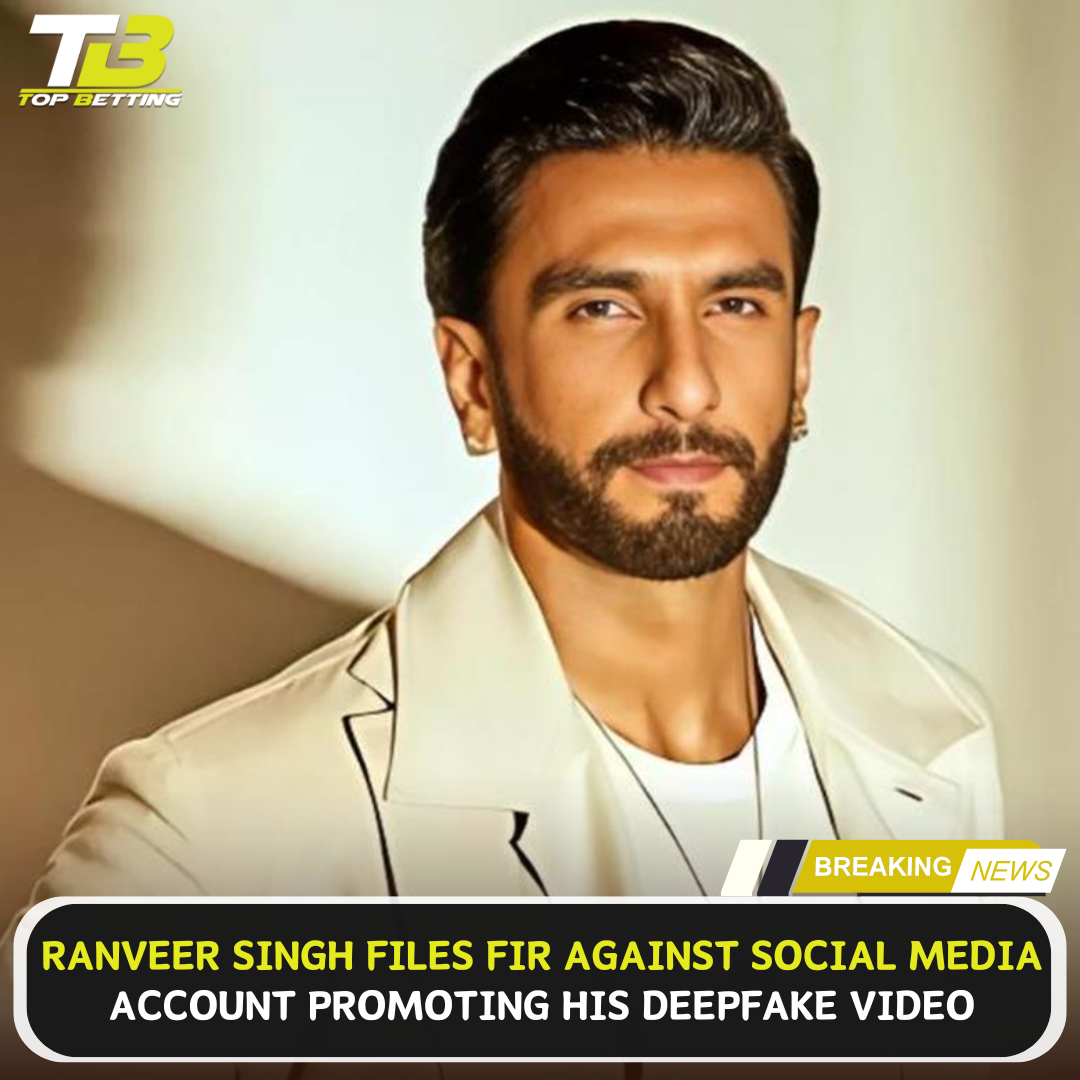
Ranveer Singh files FIR against social media
Ranveer Singh is heard discussing politics in a deepfake video. The audio is an artificial intelligence (AI) clone of Ranveer, but the graphics are real.
The actor Ranveer Singh has reported the social media account that was advertising his deepfake video created by artificial intelligence. According to his representative, Ranveer filed a police complaint and a formal complaint for the Cyber Crime Cell to go into further. The action was taken a few days after the actor’s deepfake video began to circulate on social media.
The actor has reportedly filed a First Information Report (FIR) against a social media account responsible for disseminating the manipulated video.
What action has Ranveer made in regards to his deepfake video?
According to a representative for Ranveer, “Yes, we have filed the police complaint and FIR has been lodged against the handle that was promoting the AI-generated deepfake video of Mr. Ranveer Singh.” The actor can be heard allegedly discussing his political opinions in the deepfake video. The audio is a voice clone of Ranveer created by artificial intelligence, even if the video, which shows the actor during a recent trip to Varanasi, looks real.
How did it begin?
Recently, the actor stole the limelight at an outdoor fashion exhibition in Varanasi along the Ganga. Manish Malhotra, a fashion designer, organised the event. Ranveer shared his ‘divine’ impression of the city and talked highly of the improvements made to the public infrastructure during his stay.
How Ranveer had reacted after his deepfake video went viral
Later, when the deepfake video emerged on social media platforms, Ranveer, taking to his Instagram Stories, shared a post in which he wrote, “Deepfake se bacho doston (Friends, beware of deepfakes).” While the post had nothing on the clip doing the rounds of social media, it was evidently in response to his deepfake video.
The next movie starring Ranveer
In Rohit Shetty’s cop drama Singham Again, which also stars Ajay Devgn, Akshay Kumar, Kareena Kapoor, Deepika Padukone, and Tiger Shroff, fans will witness Ranveer repeating his role as Simmba. In addition, Ranveer will star in Farhan Akhtar’s Don 3, which is slated for release in 2025.
The actor most recently appeared with Alia Bhatt, Dharmendra, Jaya Bachchan, Shabana Azmi, and others in Rocky Aur Rani Kii Prem Kahaani, directed by Karan Johar.
Ranveer Singh, the renowned Bollywood actor, has taken a decisive step against the proliferation of a deepfake video featuring his likeness. The actor has reportedly filed a First Information Report (FIR) against a social media account responsible for disseminating the manipulated video. The move underscores the growing concern surrounding the spread of deepfake content on digital platforms and its potential repercussions.
Deepfake technology allows for the creation of highly realistic videos by superimposing one person’s face onto another’s body, often resulting in misleading or fabricated footage. In this instance, Ranveer Singh found himself the target of such manipulation, with a video circulating online depicting him engaging in activities he did not partake in.
The filing of the FIR signifies Singh’s resolve to combat the dissemination of misinformation and protect his reputation from being tarnished by fabricated content. The actor’s action sends a clear message about the serious implications of deepfake technology and the need for stringent measures to address its misuse.
Furthermore, Singh’s legal action serves as a reminder of the importance of safeguarding individuals’ rights to privacy and integrity in the digital age. As deepfake technology continues to advance, it poses significant challenges in distinguishing between genuine and manipulated content, raising concerns about its potential to deceive and manipulate unsuspecting audiences.
The incident involving Ranveer Singh underscores the broader societal implications of deepfake technology and the urgent need for regulatory measures to curb its misuse. While technological advancements offer numerous benefits, they also present new risks and challenges that require proactive measures to mitigate.
In response to the proliferation of deepfake content, there has been a growing call for the implementation of stricter regulations and technological solutions to detect and counteract its spread. Governments, social media platforms, and tech companies are being urged to collaborate in developing robust strategies to combat the threat posed by deepfakes.

Additionally, raising awareness among the public about the existence and potential dangers of deepfake technology is crucial in fostering greater digital literacy and resilience. Educating individuals about the techniques used to create deepfake content and how to identify it can empower them to critically evaluate the authenticity of online media.
Ultimately, Ranveer Singh’s decision to pursue legal action against the dissemination of a deepfake video underscores the need for collective efforts to address the growing threat posed by manipulated media. By taking a stand against misinformation and protecting individual rights, Singh sets an example for others to follow in safeguarding the integrity of digital content and preserving trust in the online world.











